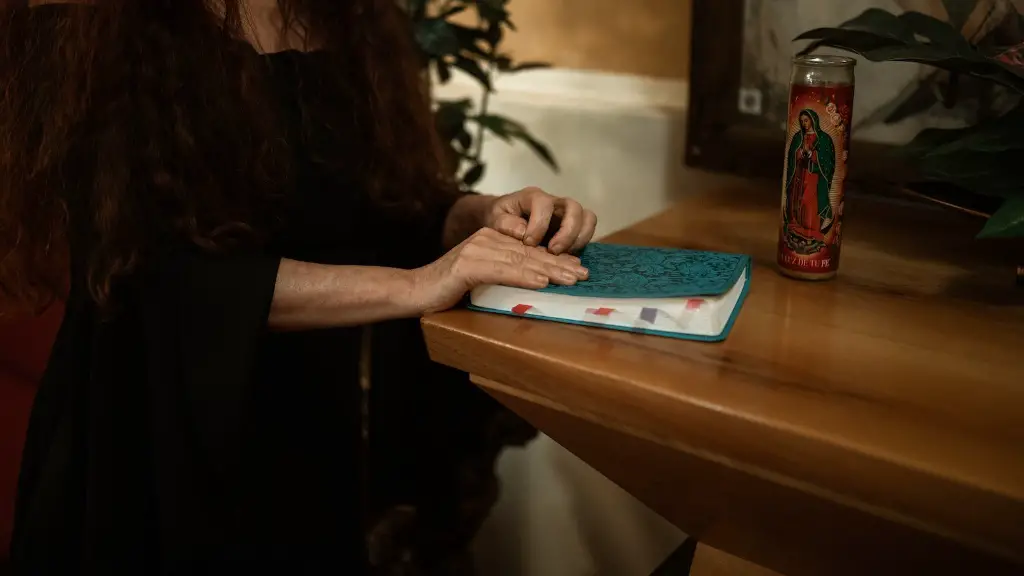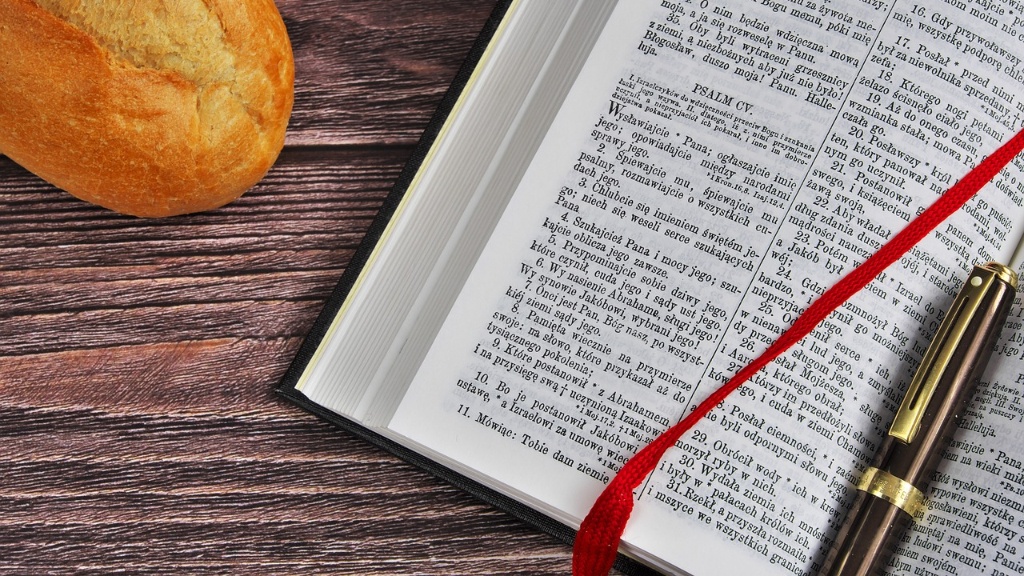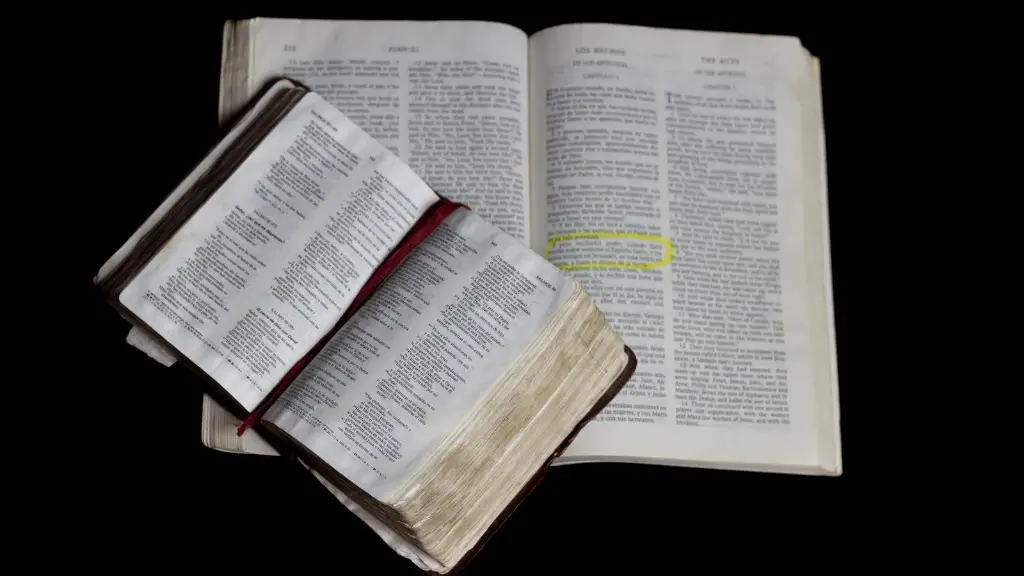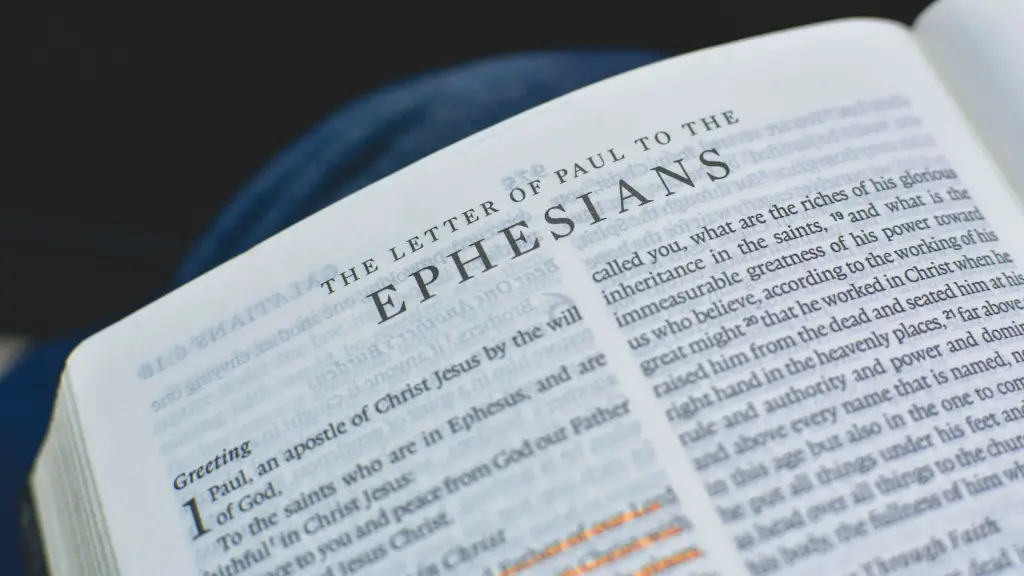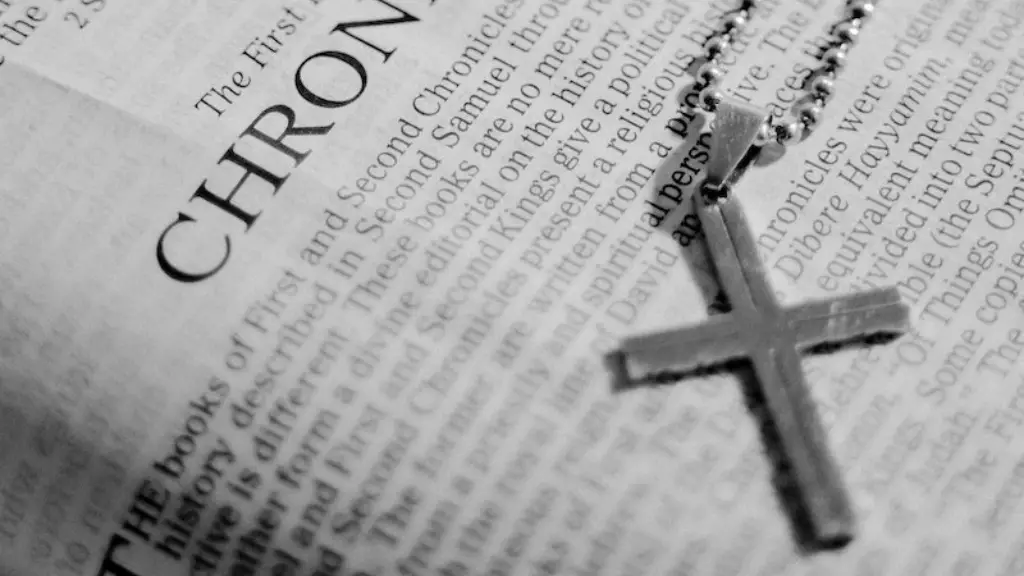The debate about to whether or not cremation is supported by the Bible has been a long and intense one. In the past, cremation was largely considered a pagan or anti-biblical practice and therefore not a legitimate option for those of the Christian faith. The truth is that, while the Bible does not directly address or condone cremation, there are passages that can be parsed to support the practice.
Throughout the Old Testament, a number of graves are mentioned as having been regarded as a proper way for disposing bodies: Abraham, Sarah and Jacob were all buried, as were a number of other major figures. In fact, in the case of some patriarchs, their corpses were specifically placed in family tombs in order to transmit the family lineage. The example of Joseph’s bones being taken to Canaan upon Moses’ death and those of Moses himself ( Deuteronomy 34:6) cements this practice of burials being preferred over cremation as a respectful and honorable way to handle the dead.
In the New Testament, there is also some indication that burial was preferred. Jesus himself was buried, as was his friend Lazarus. Moreover, the language of St. Paul suggests that to be buried was a sign of hope and of union with Christ, who upon his death was buried in a tomb.
At the same time, the Bible does not specifically condemn cremation. The clear majority of Old Testament burials were due to either ultimate respect or maximum practicality (in the case of Joseph’s bones, for example). Cremation was not seen as evil per se and was in fact quite common among certain cultures in the region, as was evidenced in the practice of burning people alive or of burning corpses as punishment for certain crimes. Crucially, burning was practiced as part of Jewish funerary rites as well. This can be seen in the traditional Jewish practice of asking God’s permission before burning a corpse (due to the holiness of the body).
In conclusion, scripture itself does not explicitly say whether or not cremation is allowed. However, the spirit and intent of scripture point toward burial as being a biblical standard. This does not mean that cremation is condemned, just that burial is preferred. Ultimately, it is up to the individual to make his or her own decision and should do so in faith that God will understand the choice and meet the person where they are.
Societal Views on Cremation
The opinion of cremation and whether or not it is accepted within religious traditions has also varied over time. In some traditions, such as Hinduism and Buddhism, it is seen as an important part of the mourning process. In these religions, cremation is seen as a way of symbolically allowing the soul of the deceased to move on to the afterlife.
In Western society, and especially within the Christian tradition, cremation has traditionally been frowned upon due to the association with pagan funerary rites. This is no longer the case, although it still remains controversial. In recent decades, the Catholic Church has allowed for cremation in limited circumstances and other denominations are slowly accepting the practice as well.
The rise in acceptance of cremation can be attributed to several factors, including rising land and burial costs, a desire for a simpler, more direct way of handling the body and an increase in cultural acceptance of the practice. At the same time, those wishing for a traditional Christian burial may still find it difficult to accept this view, as well. For many, a respect for the dead and a desire to follow the Christian tradition overrides practicality in this decision. Regardless of the opinion of one’s church, the decision of whether or not to cremate is a personal one.
Environmental Impacts of Cremation
Along with the spiritual and practical considerations, cremation has environmental impacts to consider as well. It is important to consider the environmental consequences of not just the act of cremation but also the materials used in the process. Cremation releases carbon dioxide and other gaseous pollutants into the atmosphere, as well as mercury, which is emitted from dental fillings and other materials.
In addition, cremate ashes can take years to decompose naturally and can become a hazardous material if not properly disposed of. It is therefore important to dispose of the ashes responsibly, either in a biodegradable or incinerated container or by spreading the ashes in a natural area.
The burning of a corpse also requires fuel and oxygen, both of which are finite resources. Minimizing the use of these resources is important both for economic and environmental sustainability. Furthermore, fuel used in the cremation of corpses can be extremely volatile and can contaminate the surrounding environment. For these reasons, it is important to do what one can to minimize the environmental impact of cremation.
Finally, one must also consider the environmental cost of cemetery maintenance. Land used for burial needs to be tended and maintained, which requires the use of equipment, fuel and labor. That land also cannot be used for other purposes, while cremation offers an alternative with a much smaller environmental footprint.
Economic Impacts of Cremation
Another factor to consider when deciding between burial and cremation is the cost involved. Burials can be quite expensive and can drain a family’s finances in a time when they are already going through a great deal of emotional and financial upheaval. According to the National Funeral Directors Association, the average cost of a funeral in 2019 was over $7,000, and this does not include the costs of a cemetery plot and headstone.
In contrast, a cremation service is generally much less expensive, with the average cost being around $500. The cost savings are even greater when the expenses associated with purchasing a cemetery plot and casket as well as maintaining a gravesite are factored in. This cost difference can make cremation a much more attractive alternative for families who need to stick to a tight budget.
Furthermore, there is the practical consideration of space. Burial takes up a great deal more real estate than cremation. This can be important if families are considering the needs of their loved ones when deciding between the two.
Religious Stances on Cremation
Religion will also often be an element in the decision whether to bury or cremate, as we have already seen. The Catholic Church, for example, used to forbid cremation, until the practice was allowed in 1963. Other Christian denominations have adopted various stances over the years as well. Some conservative denominations believe that cremation goes against God’s design and laws. Other denominations, such as the United Church of Christ, have no clear stance on the matter and leave it up to individual congregations to determine whether to allow the practice.
Similarly, in the Jewish faith there is no clear consensus on the issue. In traditional Jewish funerals, burial is nearly always favored. Some Jewish communities, however, allow for cremation and interpret certain passages about death and resurrection in a way that allows for cremation in special circumstances.
Ultimately, it is up to the individual to decide which method of body disposition to choose. The decision should be made in prayer, as this is an issue of faith and is one that should be discussed openly and prayerfully.
Final Considerations
In the end, the decision of whether or not to cremate should be made with careful consideration of both practical and spiritual factors. Burial has been the traditional practice for centuries and is generally more socially accepted. That said, cremation can offer practical and financial advantages, as well as environmental benefits. It can also be seen as a way of honoring the deceased’s wishes, if that wish was expressed before they passed away.
Ultimately, the decision of whether or not to cremate is an intensely personal one. It is important to consider both practical and spiritual factors when making the decision and to remember that the honored dead will one day return to life and will be reunited with loved ones in the afterlife.
